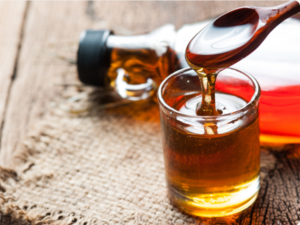Artisanal cheese is a product of centuries-old craftsmanship that embodies the essence of tradition, flavor, and quality. In a world that is now dominated by mass-produced foods, it comes out as a testament to the artistry and dedication of skilled cheesemakers. In this article, we will delve into the history of artisanal cheese, understand its benefits, and explore its impact on the environment.
What is Artisanal Cheese?

Artisanal cheese refers to cheese that is produced by skilled artisans using traditional methods and high-quality ingredients. It emphasizes craftsmanship and flavor unlike mass-produced cheese, which often prioritizes efficiency and uniformity. The cheesemakers involved in making, typically work in small batches thus allowing for greater attention to detail and quality control.
Characteristics of Artisanal Cheese
- Handcrafted: It is handcrafted. That is, each wheel or block receives individual care and attention from the cheesemaker.
- Locally Sourced Ingredients: Many artisanal cheesemakers prioritize locally sourced milk from small-scale farmers and support local economies. Thus, reducing the carbon footprint associated with transportation.
- Diverse Flavors: It is available in a wide range of flavors, textures, and aromas. It reflects the unique terroir of the region and the expertise of the cheesemaker.
- Natural Aging Process: It undergoes natural aging thus allowing flavors to develop slowly and naturally over time. This results in a more complex and nuanced product.
Difference Between Artisanal and Processed Cheese

The distinction between artisanal and processed cheese lies in their production methods as well as ingredients and flavor profiles. Here are the differences :
Artisanal Cheese
- Handcrafted by skilled artisans.
- Made from high-quality, locally sourced ingredients.
- Emphasizes flavor, diversity, and tradition.
- Often undergoes natural aging.
Processed Cheese
- Manufactured using industrial processes.
- Contains additives, preservatives, and emulsifiers.
- Uniform in texture and flavor.
- Designed for mass production and extended shelf life.
Benefits of Consuming Artisanal Cheese

- Superior Flavor: It offers a superior flavor and complexity compared to processed cheese. Thus making it a delight for the tongue.
- Supports Small-Scale Producers: It supports small-scale producers and promotes sustainable agriculture practices.
- Preservation of Tradition: You contribute to the preservation of traditional cheesemaking techniques and heritage.
- Environmental Benefits: Artisanal cheesemaking often involves sustainable practices such as sourcing local ingredients, reducing carbon emissions, and supporting biodiversity.
Environmental Impact of Artisanal Cheese
Its production can have a positive environmental impact compared to mass-produced cheese.
- Local Sourcing: Many artisanal cheesemakers prioritize locally sourced ingredients. This helps reduce the environmental impact of transportation and supports local farmers.
- Reduced Carbon Footprint: Small-scale production and natural aging processes result in lower carbon emissions when compared to industrial cheese production.
- Biodiversity Conservation: Supporting artisanal cheesemakers helps preserve traditional farming landscapes and promotes biodiversity in rural areas.
Aligning with Sustainability

Consuming this cheese aligns with broader sustainability goals in several ways:
- Supporting Local Economies: It supports local economies and small-scale producers thus contributing to community resilience and economic sustainability.
- Reducing Environmental Impact: The production often involves sustainable practices such as local sourcing, minimal processing, and waste reduction, reducing its environmental footprint.
- Preserving Tradition: By supporting artisanal cheesemakers, consumers help preserve traditional farming and cheesemaking practices, safeguarding cultural heritage for future generations.
Conclusion
Thus, we see how artisanal cheese offers a flavorful and environmentally conscious alternative to mass-produced cheese. Consuming this aligns with various sustainable practices and also helps local communities. So next time you are shopping for cheese, do try to look out for some artisanal cheese and give it a try! You can also check it out online at Artisanalcheese.
Also, if you are lactose intolerant or don’t like dairy products in general, then check out Fermented Cashew Cheese!





